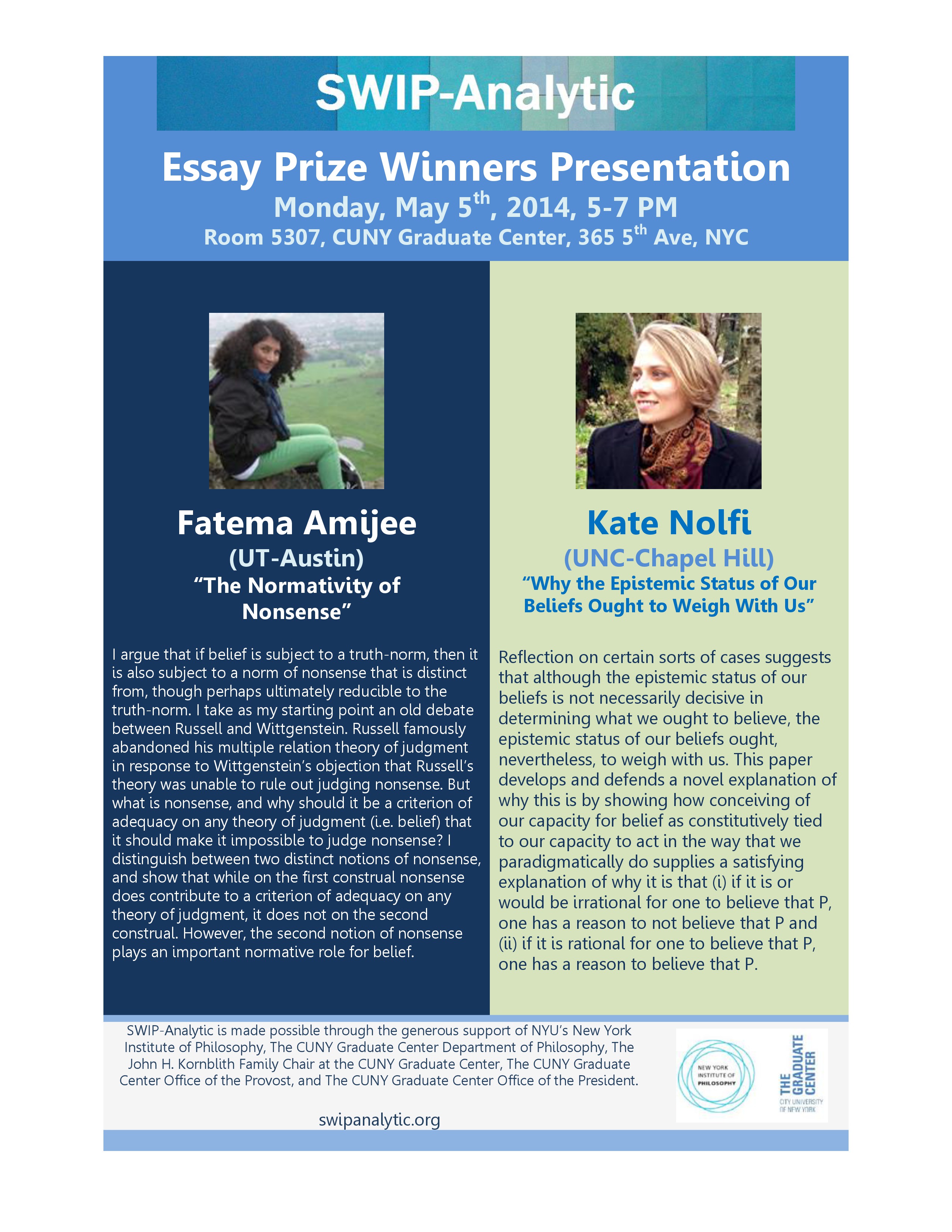This calendar showcases SWIP-Analytic events and a number of talks within train distance of the New York City area given by women working in analytic philosophy. Email our webmaster at swipanalytic@gmail.com to suggest events to add to the calendar!

- This event has passed.
SWIP-Analytic Essay Prize Presentation: Fatema Amijee & Kate Nolfi
May 5, 2014 @ 5:00 pm - 7:00 pm

May’s SWIP-Analytic workshop will be given by the winners of the 2014 SWIP-Analytic Graduate Student Essay Prize, Fatema Amijee (UT-Austin), with “The Normativity of Nonsense“, and Kate Nolfi (UNC-Chapel Hill), with “Why the Epistemic Status of Our Beliefs Ought to Weigh With Us“.
Amijee Abstract: I argue that if belief is subject to a truth-norm, then it is also subject to a norm of nonsense that is distinct from, though perhaps ultimately reducible to the truth-norm. I take as my starting point an old debate between Russell and Wittgenstein. Russell famously abandoned his multiple relation theory of judgment in response to Wittgenstein’s objection that Russell’s theory was unable to rule out judging nonsense. But what is nonsense, and why should it be a criterion of adequacy on any theory of judgment (i.e. belief) that it should make it impossible to judge nonsense? I distinguish between two distinct notions of nonsense, and show that while on the first construal nonsense does contribute to a criterion of adequacy on any theory of judgment, it does not on the second construal. However, the second notion of nonsense plays an important normative role for belief.
Nolfi Abstract: Reflection on certain sorts of cases suggests that although the epistemic status of our beliefs is not necessarily decisive in determining what we ought to believe, the epistemic status of our beliefs ought, nevertheless, to weigh with us. This paper develops and defends a novel explanation of why this is by showing how conceiving of our capacity for belief as constitutively tied to our capacity to act in the way that we paradigmatically do supplies a satisfying explanation of why it is that (i) if it is or would be irrational for one to believe that P, one has a reason to not believe that P and (ii) if it is rational for one to believe that P, one has a reason to believe that P.


